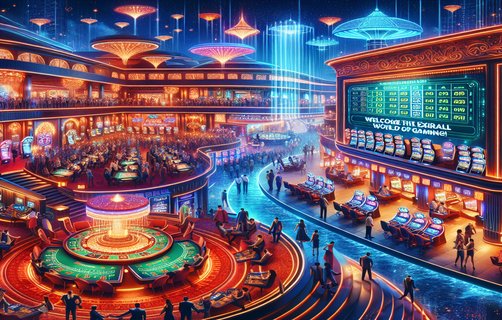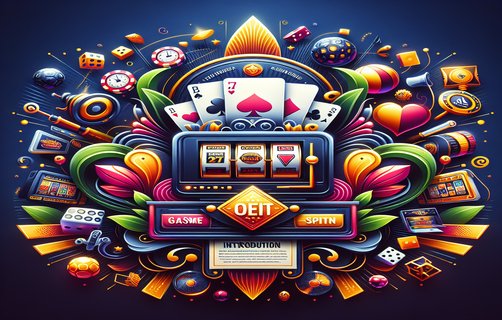Navigating the Complexities of Rummy Ludo: An Analytical Perspective
रमी लुडो की जटिलताओं का अन्वेषण: एक विश्लेषणात्मक दृष्टिकोण
The intriguing blend of strategy and chance makes Rummy Ludo a captivating game, but its nuances warrant a closer examination. In this analysis, we explore critical areas that directly affect gameplay: game board zones, event phase interruptions, luck manipulation, deck organizers, board layout strategy, and the trader role.
Game board zones are foundational to Rummy Ludo’s mechanics. Each zone influences player movement and resource allocation significantly. Players must navigate these zones strategically to optimize their chances of winning. For instance, the starting zone allows for gradual movement, while the final zone demands tactical decisions as players approach the winning square. Understanding these dynamics can substantially enhance a player’s strategy.
Event phase interruptions represent moments of unpredictability. These interruptions can alter the course of the game, especially during critical moves. Players must remain agile, ready to adapt their strategy when faced with sudden rule changes or unique events that can shift the gameplay. Therefore, mastering timing and adaptability becomes essential for success in Rummy Ludo.
Luck manipulation is another contentious issue that can skew the balance of the game. Players often employ strategies that exploit random chance to their advantage, such as strategically drawing cards or using certain board zones to influence outcomes. While luck is inherent to many games, how it’s manipulated can either maintain game balance or lead to frustration among players.
Deck organizers become vital in maintaining a game’s flow. They facilitate quick access to necessary resources, allowing players to keep the game moving and make critical decisions without delays. A well-structured deck assists players in strategic planning, improving their efficiency and reaction times during gameplay.
Board layout strategy is equally important. The arrangement of squares and zones must be crafted to ensure a balanced playing field. Variations in board design directly affect player decisions, resource management, and competitive dynamics. Players gain an advantage by anticipating opponents’ moves and exploiting layout features, demanding a keen understanding of spatial strategy.
Lastly, the trader's role introduces a layer of negotiation and strategy. This player acts as a mediator, facilitating trades that can enliven the game dynamics. Effective traders can sway the balance of power, turning the tide in favor of players willing to negotiate wisely. Consequently, mastering this role enhances overall game strategy.

In summary, Rummy Ludo encapsulates a spectrum of strategic elements and random events, each influencing the gameplay. Understanding these components not only enriches the gaming experience but also fosters a more engaging competitive environment.
रमी लुडो का आकर्षक मिश्रण रणनीति और अवसर का एक रोचक खेल बनाता है, लेकिन इसके बारीकियों के लिए निकटता से परीक्षा आवश्यक है। इस विश्लेषण में, हम खेल के विभिन्न महत्वपूर्ण क्षेत्रों का अन्वेषण करते हैं: गेम बोर्ड ज़ोन, इवेंट फेज़ इंटरप्शन, भाग्य हेरफेर, डेक आयोजक, बोर्ड लेआउट रणनीति और व्यापारी की भूमिका।
गेम बोर्ड ज़ोन रमी लुडो की मैकेनिक्स के लिए मौलिक हैं। प्रत्येक जोन खिलाड़ी की गति और संसाधन आवंटन पर महत्वपूर्ण प्रभाव डालता है। खिलाड़ी अपने जीतने के अवसरों को अधिकतम करने के लिए इन ज़ोन को रणनीतिक रूप से नेविगेट करने की आवश्यकता होती है। उदाहरण के लिए, प्रारंभिक जोन चरणबद्ध गति की अनुमति देता है, जबकि अंत जोन जीतने के स्क्वायर के करीब पहुंचने पर रणनीतिक निर्णय की आवश्यकता करता है। इन गतिशीलताओं को समझना खिलाड़ी की रणनीति को काफी सुधार सकता है।
इवेंट फेज़ इंटरप्शन अप्रत्याशितता के क्षणों का प्रतिनिधित्व करते हैं। ये इंटरप्शन खेल के क्रम को बदल सकते हैं, विशेष रूप से महत्वपूर्ण चालों के दौरान। खिलाड़ियों को सतर्क रहना चाहिए, अचानक नियम परिवर्तन या विशेष ईवेंट का सामना करते समय अपनी रणनीति को अनुकूलित करने के लिए तैयार रहना चाहिए। इसलिए, समय और अनुकूलता का मास्टरिंग रमी लुडो में सफलता के लिए आवश्यक हो जाता है।
भाग्य हेरफेर एक और विवादास्पद मुद्दा है जो खेल के संतुलन को प्रभावित कर सकता है। खिलाड़ी अक्सर अपनी स्थिति को लाभ में बदलने के लिए यादृच्छिकता का शोषण करने की रणनीतियाँ अपनाते हैं, जैसे कि रणनीतिक तरीकों से कार्ड ड्राइंग या परिणामों को प्रभावित करने के लिए कुछ बोर्ड ज़ोन का उपयोग करना। जबकि भाग्य कई खेलों में अंतर्निहित होता है, इससे कैसे निपटा जाता है यह खेल संतुलन को बनाए रख सकता है या खिलाड़ियों के बीच निराशा का कारण बन सकता है।
डेक आयोजक खेल की गति को बनाए रखने में महत्वपूर्ण हो जाते हैं। ये आवश्यक संसाधनों तक त्वरित पहुंच की सुविधा प्रदान करते हैं, खिलाड़ियों को क्रिटिकल निर्णय लेते समय बिना किसी देरी के खेल को आगे बढ़ाने की अनुमति देते हैं। एक अच्छी तरह से संरचित डेक खिलाड़ियों को रणनीतिक योजना में मदद करती है, खेल के दौरान उनकी दक्षता और प्रतिक्रिया समय को सुधारती है।

बोर्ड लेआउट रणनीति समान रूप से महत्वपूर्ण है। वर्गों और जोनों की व्यवस्था संतुलित खेल का मैदान सुनिश्चित करने के लिए तैयार की जानी चाहिए। बोर्ड के डिजाइन में भिन्नताएं खिलाड़ी के निर्णयों, संसाधन प्रबंधन और प्रतिस्पर्धी गतिशीलता पर सीधे प्रभाव डालती हैं। खिलाड़ी प्रतिस्पर्धियों की चालों की पूर्वानुमान करके और लेआउट सुविधाओं का शोषण करके लाभ प्राप्त करते हैं, जिससे स्थानिक रणनीति की गहरी समझ की मांग होती है।
अंत में, व्यापारी की भूमिका सौदेबाजी और रणनीति की एक परत पेश करती है। यह खिलाड़ी मध्यस्थ के रूप में कार्य करता है, व्यापार की सुविधा देता है जो खेल गतिशीलताओं को जीवंत करता है। प्रभावी व्यापारी शक्ति का संतुलन बदल सकते हैं, खिलाड़ियों की स्थिति को बदल सकते हैं जो बुद्धिमानी से बातचीत करने के लिए तैयार होते हैं। नतीजतन, इस भूमिका में मास्टरिंग समग्र खेल रणनीति को बढ़ाता है।
संक्षेप में, रमी लुडो रणनीति के तत्वों और यादृच्छिक घटनाओं की एक श्रृंखला को समाहित करता है, जो प्रत्येक खेल को प्रभावित करता है। इन घटकों को समझना न केवल खेल के अनुभव को समृद्ध करता है, बल्कि एक अधिक आकर्षक प्रतिस्पर्धात्मक वातावरण को बढ़ावा देता है।

comments
GamerAce21
This analysis really captures the essence of Rummy Ludo's strategic depth.
BoardGameNinja
I love the way you explained board zones; it's often overlooked but so essential.
LuckBeALady
The discussion on luck manipulation hit home for me. I’ve seen it in games!
DeckMaster5000
Great insights on deck organization! It's crucial for a smooth game.
Strategist101
I hadn't thought about how layout impacts gameplay. Very interesting!
TradeWarrior
The trader's role adds so much to the gameplay—it really changes the strategy!